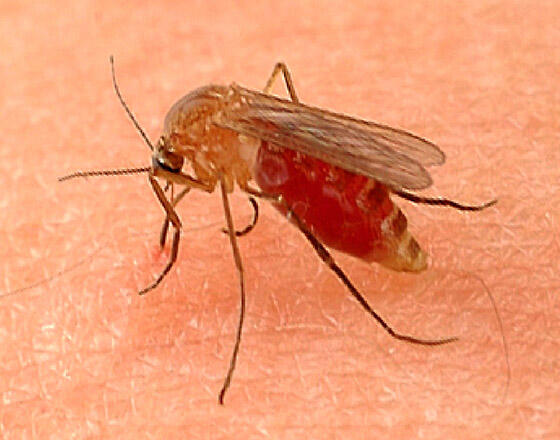A research group consisting of Professor Makoto Tominaga and former Specially Appointed Professor Sandra Derouiche of the National Institute for Physiological Sciences, Cell Physiology Research Division, in collaboration with Professor Seiji Aoyagi of the Faculty of Systems Science and Engineering, Kansai University, and Associate Professor Daisuke Uta of the Faculty of Pharmaceutical Sciences, University of Toyama and their colleagues has successfully demonstrated in mice that mosquito saliva suppresses the function of two pain sensors, capsaicin receptor TRPV1 and wasabi receptor TRPA1.
Mosquito saliva contains many components and in order to identify the components suppressing the function of TRPV1 and TRPA1 in sensory nerves, the researchers heat-treated the saliva. The researchers hypothesized that if the components of these proteins are the important factors in this phenomenon, heat treatment would induce denaturation and the suppression effect would disappear. Treatment at 95 °C for 20 minutes abolished the inhibitory effect on TRPV1 and TRPA1, suggesting that the protein components contained in the saliva of mosquitoes inhibited the function of TRPV1 and TRPA1. Similarly, the functional inhibitory effect of mouse saliva was lost after heat treatment. The painkilling effect of the protein sialorphin, which is present in the saliva, has previously been reported, and after examining this effect, it became clear that sialorphin suppressed the function of the human TRPV1 and TRPA1 in a dose-dependent manner. This outcome showed that sialorphin is critical for the TRPV1/TRPA1-inhibitory effects of mosquito and mouse saliva.

Copyright:DAINIHON JOCHUGIKU Co.,Ltd.
To investigate the painkilling effect at an individual level, the researchers administered capsaicin (active component of chili peppers) and allyl isothiocyanate (an ingredient in wasabi) to the soles of the feet of mice to observe their pain-related behaviors. They confirmed that pain-related behaviors were suppressed by the mosquito saliva. They also showed that while spinal nerves were excited when mechanical stimulation was applied to the foot, the excitation of rat spinal nerves was suppressed by mosquito saliva and sialorphin. "Previously, it was thought that since mosquito proboscis needles are fine, we do not feel pain when being bitten by mosquitoes," Professor Funaga said. "The inhibitory effect of pain found in the results of the present study was similar to that observed for mouse saliva. Both humans and animals are known to lick their wounds; it can be said that this also leads to a painkilling effect. It is hoped that these findings will lead to the development of new painkillers."
This article has been translated by JST with permission from The Science News Ltd.(https://sci-news.co.jp/). Unauthorized reproduction of the article and photographs is prohibited.




